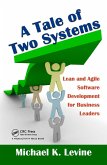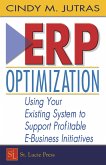A Tale of Two Systems: Lean and Agile Software Development for Business Leaders reviews two fictional systems development projects. One project proves to be an abject and expensive failure, while the other succeeds in creating a major new revenue stream and solving important customer needs. Contrasting the methods employed in a traditional, process-centric 'waterfall' approach, with a lean and agile-inspired approach, this book provides business leaders with a tangible understanding of why lean thinking is so well-suited to contemporary environments requiring flexibility, speed, and the input of specialized knowledge.
Dieser Download kann aus rechtlichen Gründen nur mit Rechnungsadresse in A, B, BG, CY, CZ, D, DK, EW, E, FIN, F, GR, HR, H, IRL, I, LT, L, LR, M, NL, PL, P, R, S, SLO, SK ausgeliefert werden.









